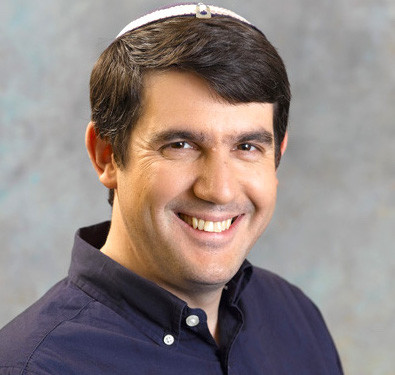Israel’s cyber-hero is professor at Bar-Ilan
Rockets raining down from Gaza. Suicide bombers slipping through terror tunnels. Terrorist threats from all angles. Soldiers on the Syrian and Sinai borders, along with nationwide security checkpoints help to neutralize physical threats. But how does our Jewish homeland stay protected from an infiltration of enemy data hackers and cyber-saboteurs?
Professor Yehuda Lindell heads the Center for Research in Applied Cryptography and Cyber Security at Bar-Ilan University, home to Israel’s number one cybersecurity lab. Lindell and his team of more than twenty trained experts work tirelessly to keep one step ahead of those attempting to breach Israel’s most sensitive data.
“We’re already in the era of cyberwarfare and cybercrime, and we’re completely unready,” says Professor Lindell. “Malware enables terrorists to easily turn a phone into a tracking or a listening device. They can remotely turn on your microphone or camera and can get hold of your location. Talk about powerful! Imagine the threat that this poses to both our military and civilians.”
In 2016, Hamas hackers targeted male Israeli soldiers on Facebook with photos of attractive women, attempting to lure them into downloading an app full of malware. Thankfully, Israel’s top cybersecurity team detected and exposed the threat before any IDF soldiers could be harmed.
“We are in a digital world where it is just not safe,” says Lindell. “But unlike the physical threat, people aren’t even aware of it.”
Yehuda Lindell earned BS and MS degrees in computer science from Bar-Ilan University. He then obtained a PhD from the Weizmann Institute in 2002. Lindell received a Raviv Fellowship and spent two years at IBM’s cryptography research group at the T.J. Watson Research Center before returning to Israel in 2004 to take up his position at Bar-Ilan.
The innovations developed by Lindell and his team are not only critical to Israel’s national security, but, according to Lindell, have global ramifications. “We have ongoing collaborations with all of the major universities in Israel and America, and we work with researchers from IBM, Microsoft, VMware, NEC, NTT, and more.”
His expertise holds valuable lessons for anyone who uses a digital device. He says there are three main factors that make us vulnerable to information bandits seeking to seize our private online data.
“One is the ubiquity of computing where everything is now a computer: your smartphone, your car, your home appliances. The more devices you own with your private data stored on it, the more exposed you potentially are.
“Too many manufacturers treat cybersecurity as an afterthought rather than a priority. This is particularly true and frightening as it pertains to the auto industry.
“Most important is a lack of education. We teach our kids not to take candy from strangers. We teach them how to cross the road carefully. But we don’t teach them Internet safety. This is likely because we don’t know how to behave online.”
One of the main threats that Professor Lindell cites as a potential danger to our own online security is our everyday use of social media. “Cambridge Analytica proves that cyberattacks via social media are a threat to our democracy. It can be used to learn our preferences and exploit them against us. It can lure young and old people into dangerous situations; it can be used to reveal something ‘dirty’ about someone who can then be blackmailed. We can’t be too careful about what we share publicly.”
As for the future of Israel’s cybersecurity, Professor Lindell shares some insight into the team’s current projects. “We are conducting a lot of research on how to utilize private data without revealing it. We are also doing work on showing how machine learning algorithms are fragile and vulnerable to cyberattacks. This is crucially important since it is being deployed everywhere, without taking the dangers into account.”
One cyberattack that Professor Lindell does not forecast for Israel is a hack of the national elections. “Fortunately, Israeli elections are still paper ballots. I hope that it will stay this way, and that our politicians will understand that digital voting without a paper trail is a massive danger.”
Bar-Ilan University is now building a new computer science laboratory, giving Professor Lindell and his team every technological advantage.
“To stay ahead of the bad guys, we are training a new generation of students who have expertise in cyber research. This group will strengthen the workforce, government, military and so on. However, it’s a long process, and we are in for the long haul.”
Source: Bar-Ilan University

 49.0°,
Fog/Mist
49.0°,
Fog/Mist 




